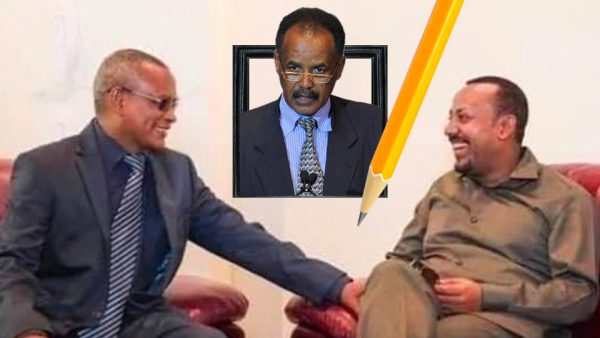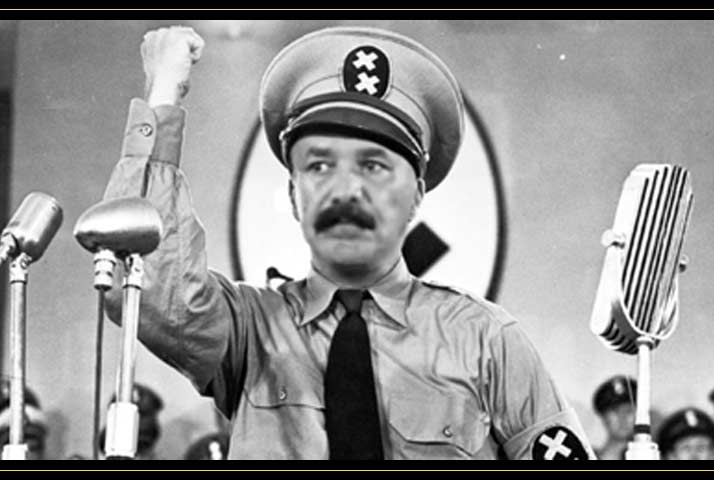Looking Forward into the Future of Eritrea
For those of us who live in the U.S., this is the time of the year in which we see American families gather and enjoy their traditional holidays and generally are at their best as they become more charitable toward those who are less fortunate. Of course, for Eritreans such gatherings, invariably, gravitate toward conversations about politics. Let’s admit it for us Eritreans our blood sport is politics, we love it, we revel in it, and we can spend debating it into the wee hours of the night. Allow me then to get right to my favorite subject – the Eritrean political landscape – but bear with me to relate to you using the subject matter I know best: the medical field and let me use cancer to illustrate my point.
In the U.S., from those who die of various cancer illnesses, the leading one is lung cancer. The next one is colon cancer. Here is where the reader needs to pay close attention to: breast cancer versus prostate cancer. The latter has enjoyed a great deal of funding in the past because the lawmakers in the past were almost exclusively comprised of men; naturally, prostate cancer got all the attention. The former, however, has had to use its citizens to raise awareness of this deadly disease. As the awareness was increasing it now has reached to a point of when sport players wear pink emblem one week a year to support the cause; at the same time within the lawmakers, women have been making headways to a point now they comprise 20% of the congress. The two approaches have yielded impressive results so much so that breast cancer gets equal attention both in awareness and in funding today.
Using the above story as a backdrop allows one to delve into Eritrean political landscape, its genesis, and its shortcomings as we move forward into the year 2014 and beyond. Consider Eritrean Ghedli, for an example. The struggle began with ELF and was completed by EPLF. Of course, this is simplistic, but a great deal that took place in between is beyond the scope of the purpose at hand; the purpose here is to start where Eritrea became a nation of state and assess where the Eritrean people went wrong and when they did not make any demand for a constitution soon after independence. While the constitution was being crafted there had to have been transitional one with expiration date where the same expiration date being applicable to those who were in power at the time. What ended up happening, unfortunately, is the EPLF leadership was allowed to lead the only way it knew how: through halengi sawra that served it well to accomplish the independence project not realizing that post-independent Eritrea did not only require stick, but carrot and stick – i.e. rule of law with a constitution in place, thereby, creating a system that would allow Eritrea to function with the civilized world. What ended up happening instead is that one man game which was familiar to us all from the Haileselassie years; where people were divided along regional lines in sports – ganta Hamassein, Seraya, Akeleguzai, etc. Isayas used that blue print to a hilt. When he is in the U.S. he would find his poster boy whom he used to ostracize as he singled him/her out by saying why couldn’t they learn Tigrinya and when he is in the Middle East he would mock those Tigrinya speakers as he insulted them why it is that they couldn’t learn Arabic, thereby deflecting the question that was asked of him to answer. And back when he is in his home-turf, he would use subtle regional differences to strengthen his power base as he let them clamor to be on his favorite list to get to a position of power – no principle, only power of here and now is what mattered and the consequences has been far reaching in its impact on the Eritrean public at large. Now, let us turn to how the three ‘Rs’ and the ‘B’ card used as a way of manipulation and emasculation of Eritrean men who until then believed were the epitome of masculinity. Let’s start with the latter.
The Biher (Ethicity) Card
The mastery and the manipulation games that Isayas plays are so right on the mark that he even instituted who is to be called Bihere Tigrinya and who is bihere saho, what have you? And when the groups do not fit into the mold he has perceived for them, then he simply disallowed them to identify themselves as they deem fit. A perfect example on this is the Jeberti, who wish to identify themselves as bihere Jeberti, but a government that is bent out of shape in wanting to have a poster boy to whip on; and when the time came to utilize it Isayas has been using it for years while the audience laughed at the expense of those whom he mocked. Was it even necessary to begin to delve into such identification processes instead of focusing on individual rights, religious freedom, freedom of the press, what he got us busy with is these things that touch to the core of our identity and our heritage. Every Eritrean has his/her cultural and religious heritage that they are proud of, but of course for an individual who has become an expert of divide and rule this was the card that has worked for him pretty well so far, he would not have wanted it any other way. Now, let’s turn to the three ‘Rs.’
The Regional Card
The Haile Selassie era region based football teams pale in comparison in how Isayas perfected the divide. Delegating political power based on one’s regional disposition – however subtly – was the hallmark of his approach to governance; thusly began to alienate certain groups as it incepted the politics of resentment by those who felt excluded from this testosterone based politics of the machos. Having no recourse to rectify any such unfairness, the resentment and the grievances were left untouched by those who received the wrath of one man’s whims and emasculating them in the process.
The Religion Card
If we thought Haile Selassie was the master of divide and conquer based on religious affiliations in Eritrea, well, Isayas outshone the king in how he instituted and delivered his isolating game. The Jehovah Witness and a sector of Muslim Eritreans were his poster boys. For the former, it all began when they resisted voting for referendum on grounds of their faith. And for the latter it was based on individual Eritrean Muslims who began to grow beard as a sign of their faith, they too, were made to disappear without any due process of law. Of, course, little by little, the net began to widen the Catholics and the Protestants were soon to follow. Religious institutions that were once considered covenants revered by all were being desecrated, humiliated, and hence emasculated.
The Refugee Card
The October 3rd, 2013 in which over 350 young Eritrean men, women, and children who perished in the high seas is just one glaring example in how one man can wreak havoc on a nation. Of course, many other accounts, reports, and now a novel by Saleh Gadi, where all they point to is not only the hollowing out of a nation from its youth, but also that emasculation process working in earnest to leave a country in an impoverished state. The man has accomplished all conceivable and inconceivable evil things any leader could master. The question that remains unanswered is this: now what?
Revisiting the analogy of the cancer story in the U.S. is instructive here. It was not that American lawmakers did not want to address breast cancer, it was the case that when people are given power and those people happen to be from one distinct mind set, one distinct class, one distinct racial or ethnic group, decisions they make will invariably shortchange the other groups, groups that have not had a say in that process. Therefore, when all is said and done, what Eritrea needs is to usher a nation that abides by rule of law, a rule of law in which all of the stakeholders have a say in. It is not a matter of the individual leader’s religious, ethnic, cultural background; rather it is a case in which any Eritrean that is willing to abide by the rule of law and is accountable to the decisions he/she makes; and whose ideas and leadership capabilities are in par with what the people of Eritrea want. What the last 22 years has taught us is that we Eritreans are no different than any African countries. We have the weaknesses that we see in some of these countries. The recent clashes we have been witnessing in South Sudan, Central Africa, and many other regions that are going through turmoil after turmoil ought to be a lesson for us to do right by our people. Communicating with one another, discussing to learn from one another, and ‘dialloguing’ to reach to a higher understanding ought to be the hallmark of Eritrea’s future. If we can’t learn these from our past mistakes, then, we will be bound to repeat them over and over again. So, to pivot to the most important part of this paper as any person in the medical field knows when a patient comes to visit a doctor the history of the patient is one of the first in which the doctor delves into in order to find out the diagnosis of the disease, thereby, giving the appropriate prescription that can help ease the patient’s complaints. In that spirit, since the ailments and the complaints of Eritrea had been diagnosed, let us now turn to the treatment. Herein follow the three step process that need to be addressed:
1. Transitional Constitution with term limits. Under this term the government will be run by Appointed Leaders who are vetted by the stakeholders. These Appointed Leaders ought to not run for any governmental post in a foreseeable future. The role of the Appointed Leaders is to serve as care takers until the multiparty election takes place.
2. The multiparty elected representative body will then draft the permanent constitution which in turn will be presented to the public for a referendum to receive the blessing of the public. At this junction the elected body representative’s job is completed and now this leads us to the third step.
3. An election will be held based on the permanent constitution that the public approved and the government is formed hence to move forward with national projects, the works of the people and what people need as they live their day-to-day lives in peace and with hope and dream for the future of the country and their family. To borrow the famous American phraseology in the Declaration of Independence: Life, Liberty, and the pursuit of Happiness is the best medicine that anyone can bestow on the Eritrean people who have suffered so much and deserve this at last.
salnur13@gmail.com



Awate Forum